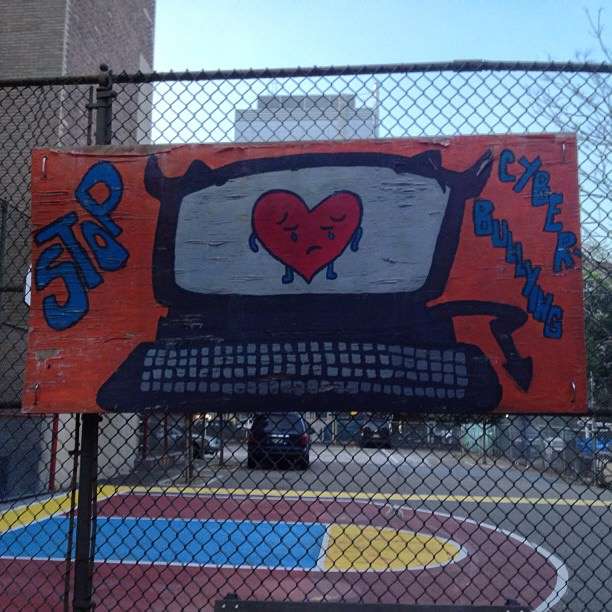Sloppy U.N. Cyberviolence Report Uses Damsels in Digital Distress to Cheer Censorship
Why did the U.N. feel justified in recommending such illiberal censorship policies while providing such shoddy evidence to back their claims?


This September, the United Nations Broadband Commission published a controversial report calling for more government regulation of online content to combat an alleged epidemic of "cyber violence" against women and girls. Free speech advocates, Internet freedom activists, and even some feminists immediately condemned the publication, titled "Cyber Violence Against Women and Girls: A Worldwide Wakeup Call," for its sloppy methodology, draconian regulatory proposals, and threat-inflation—implying harassing online comments are on the same level as real-world violent acts. The United Nations (U.N.) has since pulled and apologized for the weak report, but this episode is only the latest troubling example of how authoritarian forces can exploit emotional rhetoric to impose more control over the Internet and society.
Like most authoritarian power grabs, the movement to control and censor speech online exploits worthy-sounding causes as justification to promulgate bad policies. Recently it's been protection from terrorism, political bias, or the scourge of illegal downloads. Today, damsels in digital distress just happen to be the favored prop. The pretexts change, but the "solution" is somehow always the same: giving powerful groups more authority.
The 61-page U.N. report released provides a good case study of this dynamic. The authors clearly and quickly assert that acts of "cyber violence against women and girls" (awkwardly-acronymed as "cyber VAWG") are just as dangerous, and indeed often indistinguishable from, acts of real-world physical violence. To this U.N. body, such decidedly non-violent offenses as publishing rude comments, hacking, and advertising or exchanging money for sex online are no mere "first world problems" but can in fact represent "the worst form of gang violence." This false equivalence that places uncouth but immaterial choruses of "TITS OR GTFO" on the same level as the brutal honor killings, genital mutilation, and acid attacks that maim or kill women across the world for living while female is immediately evident.
Even if so-called cyber VAWG was indeed a global epidemic, psychological distress is quite obviously a categorically different problem than literal physical assault, torture, and death. Attempting to conflate them does a disservice all women that activists would like to empower, provoking skeptics to take the cause of "cyber violence" less seriously while demeaning the plight of physically oppressed and possibly shifting needed attention and resources.
This grandiose rhetoric equating childish forum taunts with gang attacks has all of the trappings of a "technopanic" in action. My Mercatus Center colleague Adam Thierer has written extensively about this phenomenon, wherein benign or manageable technology risks get blown up out of proportion by activists, ultimately distracting from bigger hazards while justifying clumsy new regulatory schemes that diminish expressive and innovative potential. One surefire way to detect a technopanic is to compare the passion of activists' prose to the quality of their citations.
The U.N. cyber violence report makes sweeping claims with only amateurish evidence. One determined skeptic scrutinized each of the 120 citations, finding that around 30 percent are simply blank, do not exist, or are discredited, while another 15 percent are circular references to the U.N. itself. Some citations merely contain anecdotal stories not backed up by studies or media reports, while another draws from a 2000 opinion article by Helga Zepp-LaRouche titled "The Mark of the Beast: America's Children Are In Mortal Danger" to argue that "violent video games are turning (boys) into 'killing zombies.'" One particularly embarrassing footnote only lists a path to an author's own hard drive—do we really want these people crafting international technology policy?
More troubling is the lack of transparency regarding the report's key empirical claim: that 73 percent of women have experienced so-called "cyber violence." No data tables or methodological descriptions are provided, only a few stylized graphs displaying these findings, sourced to private consulting firm Networked Intelligence for Development. We are expected to simply accept this figure without context or scrutiny, and furthermore to surrender our open Internet to U.N.-approved bureaucracies who will "use their licensing prerogative" to censor what they consider to be cyber violence.
Why did the U.N. feel justified in recommending such dangerous illiberal censorship policies while providing such shoddy evidence to back their claims? It helps if social biases are on your side.
The U.N. is far from the first body to weigh in on the issue of online harassment, but it is certainly the most influential. The embattled report follows a years-long campaign by feminist activists and journalists to shed light on what they view as an "epidemic" of "gender terrorism" online. As more women continue to enter online spaces, a small but growing and vocal sect claim to have been the targets of nasty and often sexualized harassment campaigns connected not to any of their personal behaviors but solely due to their sex.
But many are skeptical about these empirical claims. Feminist writers Christina Hoff Sommers, Caroline Kitchens, and Cathy Young, for example, have pushed back against the idea that women disproportionately suffer from sex-specific online abuse. And in 2014, the non-partisan Pew Research Center released a comprehensive study about online harassment and attitudes. Contra the U.N., it is actually men who report online harassment at higher rates. What's more, survey respondents were far more likely to report that online "neighborhoods" are much more welcoming to women than men, even in the hotly-debated space of online gaming.
That's not to say all is rosy and well. The Pew report also found that young women aged 18 through 24 are more likely to report "severe" forms of online abuse, which includes stalking, sexual harassment, and physical threats. Additionally, women were far more likely than men to report that they were "extremely or very upset" by the harassment.
When we clear away the emotional rhetoric and bombastic claims, some of the best social science to date suggests that while more men than women experience harassment overall, young women are more likely to be subjected to its harshest forms, and they may be more likely to suffer psychological distress from the same experience. It's something worthy of thought and attention, but a far cry from the demonic digital gang violence that the U.N. report describes.
Unfortunately, the technopanic set in motion by years of exaggerated anecdotes and crystalized by the recent U.N. action could prove hard to turn around. The core group of activists pushing for regulations on online speech truly believe that "today's harmless jokes and undue burdens are tomorrow's civil rights agenda," as the report states. While the U.N. Broadband Commission has since pulled down the report for revision, the best we can probably hope for is marginally-less sloppy citations. The core belief that hierarchical authorities must be given more power to censor and control speech on the Internet is likely to persist.
A tragic irony of this "cyber violence" movement is that its chief remedies—whether openly authoritarian or merely of the "nudge" variety—ultimately work against women. After all, a beefed-up censorship regime will scrutinize and silence everyone's speech, regardless of one's sex or gender. And more fundamentally, imbuing a mindset in girls that encourages them to simply call "the mods" for a solution without strengthening psychological resilience sets up a vicious cycle where women do not believe they can succeed without the humanitarian intervention of some higher power.
That this conditioning occurs in a pre-determined algorithmic environment tailored to minimize stress and maximize comfort forebodes a future in which fewer and fewer self-owning individuals will even care to object to ever-greater encroachments on liberty. The new riot grrls will not be those petitioning supranational bodies to increase censorship powers but the ones with enough courage to unplug from borg and think and act for themselves.


Show Comments (8)